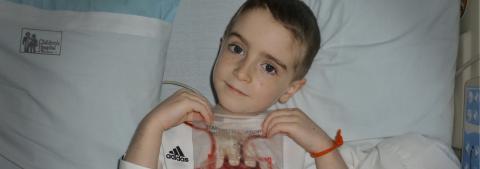A teacher from Market Harborough is to meet the young boy whose life she saved by donating bone marrow to him nearly three years ago.
Jane Theobald donated bone marrow to Jake Larkin, eight, after being found to be the only matching donor for him on any of the world’s bone marrow donor registers.
“I am glad that I was able to help him when he needed it.”
Jane’s donation saved Jake’s life when he was suffering from a very rare condition called severe aplastic anaemia which means the bone marrow does not make enough blood cells.
Jane, who teaches at Welland Park Academy in Market Harborough, said: “Everyone says how big a thing it was that I did, but I just feel proud and very humble.
“I am glad that I was able to help him when he needed it.”
Donating bone marrow
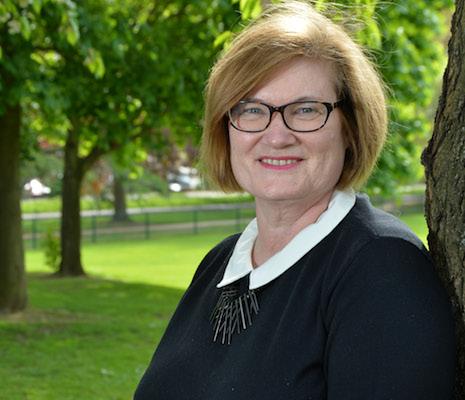
Jane, now 59, joined the Anthony Nolan register in the 1970s when Shirley Nolan was looking for a donor for her son, Anthony.
However, it was not until 2012 that she learned she had been matched with a patient in desperate need of a transplant.
"I was excited beforehand"
Jane selflessly agreed to donate and, in September 2012, she travelled to Sheffield to make the donation despite knowing nothing about the person she was donating to.
She said: “Knowing I was going to donate didn’t worry me. I wouldn’t have signed up if I wasn’t prepared to donate. In fact, I was excited beforehand.”
Anonymous letter
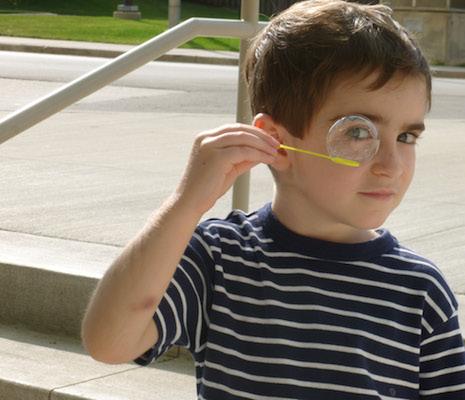
Following a donation, the patient and donor have to remain anonymous for two years and Jane received an anonymous letter from Jake’s parents thanking her for her donation.
It read: “Your gift saved the life of a little boy, but so much more, you saved the hearts of so many people who love that little boy. And you did save his life, as surely as if you had scooped him up off of train tracks in the shadow of a speeding train.
“Our son was not going to live, he was not going to grow up, he was not going to be here with us. We, as his parents, would have done the unfathomable, we would have said good-bye to his warmth, his giggle, his smell, his skin, his amazing wit, his potential...without your gift we would have buried our son.
“But you did scoop him off those train tracks, in the shadow of a speeding disease, and so his dying is only a ‘what if’ that we try to avoid as we appreciate each new day.
“Our beautiful little boy is here, happy, healthy, a little brother, a cousin, a nephew, a friend, laughing, dancing, being silly - being alive. And we are forever indebted to you.”
Severe Aplastic Anaemia
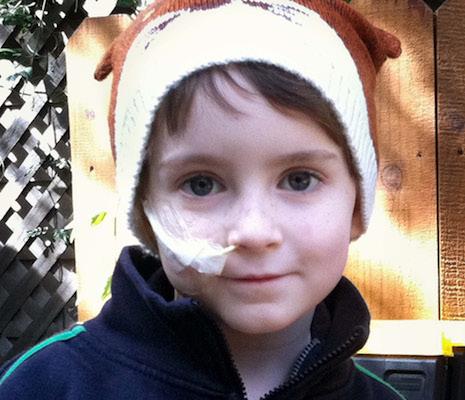
Since then, the anonymity period elapsed and Jane was able to learn the identity of her recipient.
Jake, from San Francisco in California, was diagnosed with severe aplastic anaemia in February 2012, at the age of just six.
His parents took him to a doctor after noticing that he was covered in strange bruises, that his nose kept bleeding and that he was abnormally tired.
At first, they were warned that he could have leukaemia but further tests soon revealed that he actually had severe aplastic anaemia.
He was initially treated in California with a standard immune suppression treatment regime but he did not respond and the treatment did not work for him.
As a result, his parents, Kimberly and Robert, were told that Jake would need a bone marrow transplant.
"Thank you - a million times over!"
They launched a huge campaign to encourage people to sign up as potential bone marrow donors and they even moved their family to Wisconsin to be treated by Dr David Margolis, who they felt was the best in the field of bone marrow transplantation in the U.S. and Jake’s best chance of recovery.
Eventually, they were told that a match had been found for Jake.
Kimberly, 45, said: “When we found out there was a donor for Jake we were shocked and thrilled and cautious. We knew the donor had to say yes, and pass a physical. But pretty quickly we were told she had said yes, so we only had to wait for the physical.”
Jake had his transplant in September 2012 and has gone on to make a very good recovery.
Kimberley, who is a lawyer, said: “It was wonderful when we first spoke to Jane. We cried, we laughed and we had a million questions for each other!
“The main thing we wanted to say to Jane was thank you - a million times over! She saved our son's life.
“Once the thank you was done then I just wanted to tell her about the amazing gift she gave us - about Jake and our family.”
Meeting up
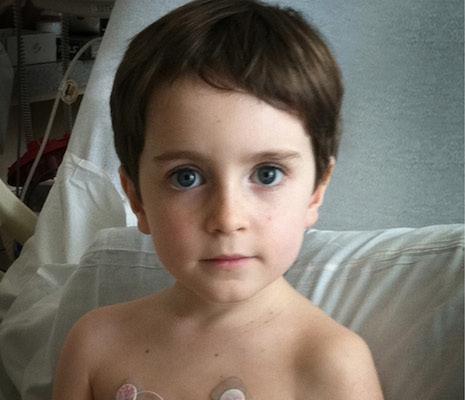
Now, on June 6, Jane and Jake are to meet for the first time when Jake and his family fly over to Britain from the States.
Jake will also attend an assembly at Jane’s school – Welland Park Academy – on June 8.
Kimberly said: “We are super excited to meet Jane and her family. It feels like the next step in the healing process for our whole family.
“We are of course nervous and a bit scared, I feel certain I will be crying and somewhat speechless initially. But I want so much to tell our story to the world. I know that happy stories, good endings, are a huge encouragement to people to get involved.
“So, we are excited to tell our story and maybe be that little spark that gets a few people to join the register - so that another family can get that news that we got, to hear those words, ‘we found a match’.”
"You could save a life, so no excuses."
Jane and Kimberly are now encouraging more potential donors to join the Anthony Nolan register and other registers around the world. Jane will come off the register automatically when she turns 60 so she is now also looking to help Anthony Nolan in other ways, such as through spreading the word about the need for more donors.
Kimberly said: “If I got to talk to someone thinking about signing up with Anthony Nolan I would say ‘if you were standing at a zebra crossing and a young child was about to walk into a busy road, would you reach out and grab him or her to avoid them getting hit by a car? Would you take that step to save a life? Well, this is way easier and you could save a life, so no excuses’.”
She added that potential donors should know that 90 per cent of donors donate through a simple outpatient procedure which is similar to giving blood.
